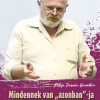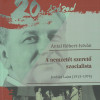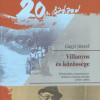A 2022. évi magyarországi országgyűlési választások nemzetiségi vonatkozásai, különös tekintettel a szlovén nemzetiségre
Megjelent Dobos Balázs Kovács Attilával (Inštitut za narodnostna vprašanja, Ljubljana) és Munda Hirnök Katalinnal (Inštitut za narodnostna vprašanja Ljubljana) közösen írott "Narodnostni vidiki parlamentarnih volitev na Madžarskem leta 2022 s posebnim ozirom na slovensko narodnost" (A 2022. évi magyarországi országgyűlési választások nemzetiségi vonatkozásai, különös tekintettel a szlovén nemzetiségre) c. cikke a ljubljanai RAZPRAVE IN GRADIVO: TREATISES AND DOCUMENTS: JOURNAL OF ETHNIC STUDIES Q2-es nyílt hozzáférésű folyóirat legújabb számában. A tanulmány elérhető ITT.






